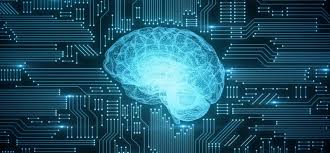Source: inc.com
The future is one of my favorite things to think about. The future holds potential and possibility. The ability to think about the future, imagine the possibilities and take action in the present moment is what separates successful people from others.
In business, seeing the future can help you innovate and invest in that future. The apps and products that are popular right now were mostly started more than five years ago. There really aren’t many “overnight successes.” If you want to be successful in five years, you need to use your vision right now.
There’s no question that artificial intelligence (AI) will be widespread in five years. Yet we don’t know exactly what it will look like. Ask 27 experts how AI will change our lives, and you’ll get 27 different answers.
I recently covered a startup using artificial intelligence in an effort to change healthcare. I received a great deal of feedback in terms of federated learning and the future of AI. Many readers wanted to learn more about AI’s disruptive potential and explore additional examples.
This article details a few more ways that AI will impact our lives. To understand where AI’s biggest impacts will be, however, consider which sectors are already showing signs of disruption.
1. The Internet of Things
The idea of inventing the future years before is true of my experience as a co-founder of SkyBell, a smart home company. When I envisioned a concept of a smart neighborhood of doorbells working together and helped file the patent, it was years before anything like that would hit the market.
AI’s ability to parse millions of data points to create great user experiences makes the home a great place to deploy AI. The smart home industry already has tons of devices with sensors, cameras and microphones, all providing inputs for data and outputs for actions and commands.
You can see platforms taking shape and devices starting to use AI and invest in its promise. Voice assistants, like Google Assistant, are already embedded in smart home products, wearables, mobile devices and more. Many connected camera products also deploy computer vision, facial recognition and other forms of visual AI. It’s clear that this is just the beginning for AI and the smart home.
2. Customer Service
It’s very likely you’ve already come across chatbots for customer service. As a business, they’re very effective in helping consumers get access to the support they need. Because users tend to ask the same things over and over, automation software can address most questions without human intervention.
Chatbots are just the beginning of how AI will reshape customer service. Rowan Trollope, CEO of Five9, a cloud contact center software provider, foresees AI conducting call analysis in real time and delivering proactive product suggestions. A B2B software firm might use it to create content that addresses leads’ most common sticking points. Internally, customer service staff could use it to learn which phrases tend to agitate callers and which calm them.
But AI shouldn’t get rid of human customer service agents. Instead, the technology will free human agents to focus on more complex questions or escalations. A mix of AI and human agents will enhance the customer experience and increase efficiency.
3. Real Estate
Quantitative bots already analyze, buy and sell stocks and currencies. Algorithmic trading represents about 80% of the U.S. stock market. In the future, AI may identify and even buy properties for real estate investors.
Virtually every corner of real estate will be affected. To develop its “Zestimates,” property listing site Zillow uses AI to factor digital photos into property value predictions. Using neural networks trained on millions of photos and home values, Zillow’s Zestimates have a median error rate of 2%.
AI may already have appraisals down, but it’ll reshape other real estate roles as well. Mortgage lenders will lean on AI for risk calculations. Developers will select sites based on algorithms trained on local zoning regulations. Realtors will feed buyers’ personal tastes into algorithms, cross-referencing those interests with properties on the market.
4. Education
Within years, educators will pass the red pen to AI, which will grade students’ assignments faster and more accurately than teachers can. But the most exciting educational application in education is learning plans.
Startups and businesses are starting to use AI to generate learning plans based on how students perform on quizzes and questionnaires. Over time, AI can build personalized learning plans that account for each student’s strengths and weaknesses. It isn’t unthinkable that, in five years, every student will have a curriculum tailored to his or her specific interests, learning style and professional plans.
5. Automobiles
When you live in Silicon Valley, you constantly see autonomous cars being driven by their human developers. These cars are packed with cameras, sensors and other data input tools that feed some of the most complex AI and machine learning platforms on the planet.
And while these autonomous cars aren’t yet fully operating on roads in the U.S., Tesla cars already offer some form of self-driving. Tesla recently released a feature that allows owners to summon their vehicle to pick them up.
You can see how AI is already changing the auto industry, and it’s easy to predict that this will continue to the day when we have fully autonomous vehicles. Actually, it’ll continue through that day and continue leading to additional advancements.
Final Word
If you want to know what the world will look like in five years, turn your attention to the innovative seeds being planted now. It’s easy to see that artificial intelligence is already making its way into our daily lives, allowing us to extrapolate where it will go from here. These are just five examples. Don’t lose sight that AI will be wildly pervasive — there’s no limit to what it can do and how it’ll change our world.
